New York Times Bestseller • Finalist for the Pulitzer Prize • An Oprah's Book Club Selection “Powerful . . . [Kingsolver] has with infinitely steady hands worked the prickly threads of religion, politics, race, sin and redemption into a thing of terrible beauty.” —Los Angeles Times Book Review The Poisonwood Bible established Barbara Kingsolver, recipient of the National Book Foundation's Medal for Distinguished Contribution to American Letters, as one of the most thoughtful and daring of modern writers. Taking its place alongside the classic works of postcolonial literature, it is a suspenseful epic of one family's tragic undoing and remarkable reconstruction over the course of three decades in Africa. The story is told by the wife and four daughters of Nathan Price, a fierce, evangelical Baptist who takes his family and mission to the Belgian Congo in 1959. They carry with them everything they believe they will need from home, but soon find that all of it—from garden seeds to Scripture—is calamitously transformed on African soil. The novel is set against one of the most dramatic political chronicles of the twentieth century: the Congo's fight for independence from Belgium, the murder of its first elected prime minister, the CIA coup to install his replacement, and the insidious progress of a world economic order that robs the fledgling African nation of its autonomy. Against this backdrop, Orleanna Price reconstructs the story of her evangelist husband's part in the Western assault on Africa, a tale indelibly darkened by her own losses and unanswerable questions about her own culpability. Also narrating the story, by turns, are her four daughters—the teenaged Rachel; adolescent twins Leah and Adah; and Ruth May, a prescient five-year-old. These sharply observant girls, who arrive in the Congo with racial preconceptions forged in 1950s Georgia, will be marked in surprisingly different ways by their father's intractable mission, and by Africa itself. Ultimately each must strike her own separate path to salvation. Their passionately intertwined stories become a compelling exploration of moral risk and personal responsibility.
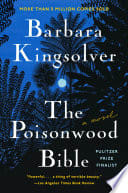
Average Rating
Informations
About the author
Barbara Kingsolver
Author
Barbara Ellen Kingsolver is a Pulitzer Prize-winning American novelist, essayist, and poet. Her widely known works include The Poisonwood Bible, the tale of a missionary family in the Congo, and Animal, Vegetable, Miracle, a nonfiction account of her family's attempts to eat locally. In 2023, she was awarded the Pulitzer Prize for Fiction for the novel Demon Copperhead. Her work often focuses on topics such as social justice, biodiversity, and the interaction between humans and their communities and environments.
The Poisonwood Bible
by Barbara Kingsolver
Books Like The Poisonwood Bible
If you're looking for books similar to The Poisonwood Bible, here are some recommendations based on themes, tone, and narrative style.
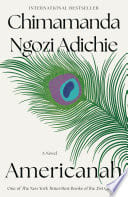
Americanah
Chimamanda Ngozi Adichie
A compelling narrative about identity, race, and cultural displacement. The novel follows a Nigerian woman's experiences in America and her return home, offering profound insights into cultural differences and personal transformation. Like Kingsolver's work, it critically examines colonialism, cultural expectations, and individual agency.
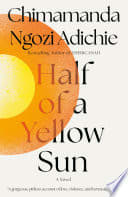
Half of a Yellow Sun
Chimamanda Ngozi Adichie
A novel set during the Nigerian Civil War, exploring the impact of political conflict on individual lives. Like 'The Poisonwood Bible', it examines colonialism, cultural identity, and personal resilience. The story follows multiple characters through a tumultuous historical period.
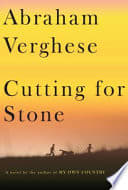
Cutting for Stone
Abraham Verghese
A powerful novel exploring family dynamics, cultural displacement, and personal transformation. Set in Ethiopia, it follows twin brothers born to a Indian nun and a British surgeon. The book delves into complex themes of identity, medical practice, and the impact of political upheaval on individual lives, similar to Kingsolver's exploration of colonialism and family.
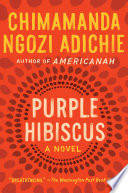
Purple Hibiscus
Chimamanda Ngozi Adichie
A powerful coming-of-age story set in Nigeria, exploring family dynamics, religious fundamentalism, and political upheaval. Like Kingsolver's novel, it examines the impact of rigid belief systems on family relationships. The narrative follows a young girl's awakening to personal and political realities.
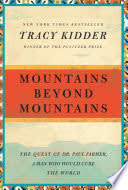
Mountains Beyond Mountains
Tracy Kidder
A non-fiction narrative about Dr. Paul Farmer's work in Haiti, exploring medical humanitarian efforts. While not a novel, it shares thematic similarities with 'The Poisonwood Bible' in its examination of Western intervention and cultural understanding. The book offers insights into cross-cultural challenges and personal commitment.
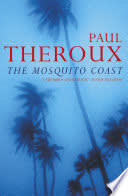
The Mosquito Coast
Paul Theroux
A novel about an idealistic father who uproots his family from the United States to Central America, pursuing a radical vision. Like 'The Poisonwood Bible', it examines the consequences of cultural misunderstanding and a patriarch's obsessive mission. The story explores family dynamics under extreme circumstances and the challenges of imposing Western ideals in a foreign context.
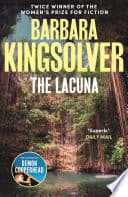
The Lacuna
Barbara Kingsolver
Another Kingsolver novel exploring cultural intersections and personal identity. Set across Mexico and the United States, it follows a writer's journey through significant historical periods. The book shares Kingsolver's signature style of blending personal narrative with broader historical and political contexts.
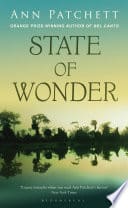
State of Wonder
Ann Patchett
A novel set in the Amazon, exploring scientific research, cultural encounters, and personal transformation. Like 'The Poisonwood Bible', it examines the complexities of Western presence in a foreign context. The story follows a pharmaceutical researcher's journey into an unfamiliar and challenging environment.
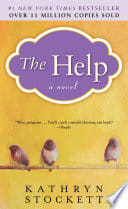
The Help
Kathryn Stockett
Set in the American South during the civil rights movement, this novel explores racial tensions and women's experiences. Similar to 'The Poisonwood Bible', it features multiple female perspectives and examines systemic oppression. The book delves into complex social dynamics and personal courage in the face of institutional racism.
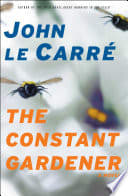
The Constant Gardener
John le Carré
A novel exploring Western intervention in Africa, corporate corruption, and personal moral choices. Similar to Kingsolver's work, it critically examines the complex relationships between Western powers and African nations. The story follows a diplomat investigating his wife's murder, uncovering broader systemic issues.
No account connected — sign in to comment.
